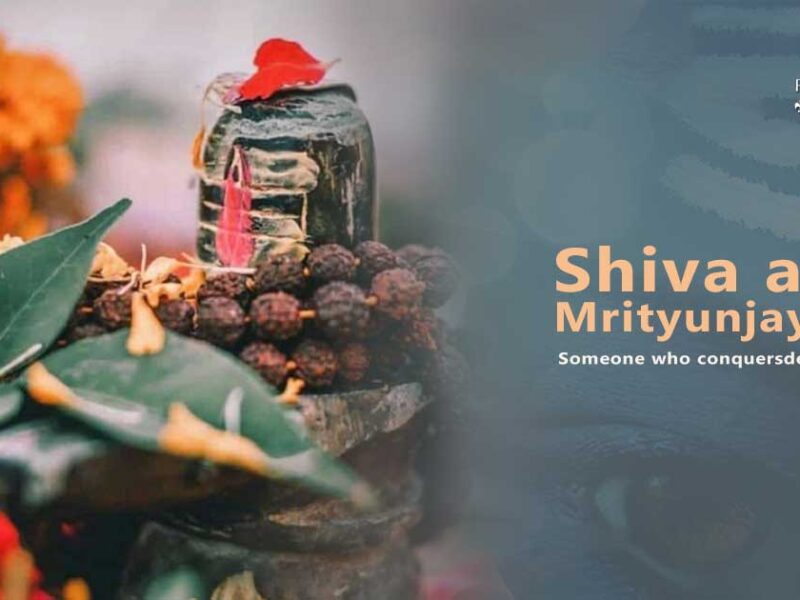Benefits of Fasting: India is a land of diverse traditions, cultures and age old practises that have passed down generations.
Fasting is one such common practise which most of the religions and cultures follow-Hinduism, Buddhism and Jainism. It is an ancient practise to test our will power and control over our sense organs. It dates back many centuries and benefits our mind and body alike.
Food is very important in our lives. Before one meal is over we start planning our next meal. The way to a man’s heart is through his stomach. This saying is quite appropriate but eating too much can cause many types of health problems like blood pressure, diabetes, obesity and cholesterol just to name a few.
If we see the lives of our Rishis, Gautam Buddha and Mahavir Bhagwan, we realise that they consumed very little food enough to stay alive. They lived in forests, meditated and would go out and ask for alms from people. Whatever fitted in their bowl that would be their meal for the day?
Also Read: SUN AND VENUS CONJUNCTION IN 12TH HOUSE VEDIC ASTROLOGY
If they would have eaten too much food they could not have risen in their spiritual practice. They did not believe in invigorating their sensory organs as it is a viscous circle of collecting, making and enjoying the food thus satisfying the sense of taste and smell. By fasting we learn to detach momentarily from the need to be fed which is the need of a primitive man and not that of an evolved one.
For a common man, living a normal life in the society it wasn’t possible to follow the practise of hermits where food habits were concerned. Therefore for them, fasting was suggested on important occasions like Shivratri, Janamasthami, Ekadasi and many others. They could control their intake of food on these special days for the betterment of their mind and body.
There are many kinds of fasts which are followed – some are done without salt which helps reduce high blood pressure and water retention in the body like Thursdays done for financial prosperity and also practised by women for the betterment of their husbands. This invokes Brihaspati, the Guru of the Devtas. In some fasts there is no intake of grains so it detoxes the body like Ekadasi.
Only fruits and potatoes are consumed usually on this day that comes twice a month, before Purnima and Amavasya. Nowadays we pay huge sums of money to nutritionists to prescribe us detox diets when all we need to do is fast like our ancestors did. Some fasts are kept without water and food especially in the Jain community, difficult to observe but they purify our mind and body alike. Nirjala Ekadasi is done without water in the hot month of May/June usually.
When we organise Bhagvat Saptah in our house the couple of the house fasts for seven days. In earlier days there was a tradition of only drinking pure cow’s ghee for these seven days, basically a lubricant and cleanser for all our body organs. Our old rituals were scientifically designed and observing them today can benefit us in many ways.
Also Read: 5 SECRETS ONLY FACE READING BY ASTROLOGY CAN TELL!
Now days during Corona times when everyone is talking about building their immunity, It has been discovered by many scientists that fasting helps boost our immunity as our body responds by producing extra white blood cells. These in turn protect our body from viruses. Fasting is beneficial for the well- being of our body and mind both.
Now let’s talk about the religious connotation to it. It is directly connected to fructification of our desires, our faith and belief. Fasts are dedicated to different Gods like Monday fasts are done to invoke Lord Shiva. Many unmarried girls observe 16 Monday fasts to get a suitable match. Then there is Tuesday fast for Hanumanji, Thursday for Brihaspati and Ekadasi for Lord Vishnu. It is a belief that fasting on Ekadasi gives you moksh. Navratri fast is very famous in North India especially. It is a fast observed for 9 days twice a year.
Different people observe it differently. There are two Gupt Navratri too but not so widely known. There are special days too in the year like birth of Krishna ( Janamashtami), Shivratri ( when the 1st Ling appeared in the sky) when many people fast. These days are celebrated like festivals. Purnima or full Moon is connected to fasting and puja of Satyanarayan Bhagvan who is connected to prosperity.
Prodosh which comes twice a month on Triodashi is Shivji’s fast observed for the well-being of the children and to ward off the ill-affects of Saturn. There are full months of Sawaan and Kartik when people eat once a day. When we fast we eat Satvik food without onion, garlic, eggs and meat. No alcohol or intoxicating items are consumed. This has a purifying affect on us and draws us towards spirituality.
When people fast for religious reasons, they pray, conduct some rituals and read their religious texts, stories as well as chant mantras and stotra. This too encourages them on the path of spirituality.
I personally have seen many miracles happening and have been rewarded out of turn but it’s the belief behind the fast that works more than the practise itself. Also when you fast you connect to the deity you fast for spiritually. You can choose your fast and start today. Just remember faith can move mountains.


